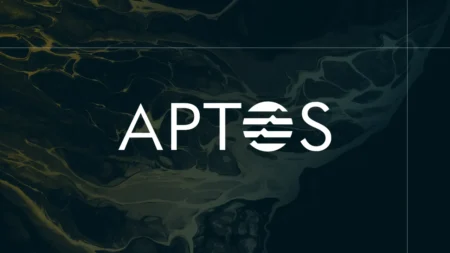Savings bonds are a common and reliable way for many Americans to save money for the future. Whether you want to purchase or cash them, the bank processes usually confuse the people. One question frequently asked by customers is whether Wells Fargo offers cash savings bonds. This article explains everything you need to know about Wells Fargo and how they handle savings bonds, particularly focusing on cashing U.S. Treasury savings bonds.
What are Savings Bonds?
Savings bonds are a form of investment issued by the U.S. Treasury, it’s the best way to grow your savings at low risk. These bonds are essentially loans you give to the government, which will pay you back with interest over time. There are two main types of savings bonds available: Series EE and Series I. Series EE bonds offer a fixed interest rate and will double in value after 20 years, while Series I bonds operate on a variable rate that adjusts based on inflation.
Does Wells Fargo Cash Savings Bonds?
Yes, Wells Fargo does offer services to cash savings bonds, particularly paper Series E, Series EE, and Series I bonds. However, there are some factors and limitations to keep in mind:
- Availability by Branch: Not all Wells Fargo branches offer savings bond services. It’s recommended to call ahead and confirm whether your local branch can help with cashing your savings bonds. Some branches may even require an appointment with a specialized banker, as regular tellers might not be familiar with the process.
- Transaction Limitations: Wells Fargo can process up to 18 savings bonds per transaction. If you have more than 18 bonds, they will need to be processed in additional transactions, which could mean multiple visits to the bank.
- Fees: In some cases, Wells Fargo may charge a fee to cash your savings bonds. The fee can vary by bond type and value, so it’s worth asking about any potential costs before completing the transaction.
How to Cash Savings Bonds at Wells Fargo

If you have U.S. Treasury paper savings bonds and want to cash them, here’s how the process typically works:
- Check Your Bonds: Verify if your bonds are eligible for cashing. Series E, EE, and I bonds can be cashed at most banks, including Wells Fargo, once they’ve matured. Bonds typically reach full maturity in 30 years, but you can cash them after one year (with a penalty if cashed before five years).
- Visit Your Branch: Head to your local Wells Fargo branch. It’s wise to call ahead and ensure the branch handles savings bond transactions. Also, bringing identification is essential, as you’ll need it to verify ownership.
- Transaction Process: When you’re at the bank, a teller or banker will help you process the transaction. They’ll calculate the current value of your bonds, which includes the principal and accrued interest. Depending on how many bonds you have, multiple transactions may be required.
- Fee Consideration: Some customers have reported that Wells Fargo charges a fee for each bond cashed. For example, there might be a $25 fee per bond, which could reduce your overall return. It’s important to ask about this fee upfront.
Alternatives to Cashing Bonds at Wells Fargo

While Wells Fargo offers services for cashing savings bonds, it’s not your only option. If you find that Wells Fargo’s services are limited in your area or you don’t want to deal with any potential fees, here are some alternatives:
- U.S. Treasury Direct: The U.S. Treasury’s online platform, TreasuryDirect, allows you to cash electronic bonds and convert paper bonds to electronic form. This platform may be more convenient for those with a large number of bonds or anyone who wants to manage their savings bonds digitally.
- Other Banks: Many other large banks and financial institutions, such as Bank of America, Chase, and PNC, also provide services for cashing savings bonds. It’s always good practice to compare fees and convenience across these banks.
- U.S. Treasury Retail Securities Services: If you’re unable to cash your bonds at a local bank, you can also send them directly to the U.S. Treasury for redemption. This process takes longer but is a reliable option.
Understanding Bond Maturity and Interest
It’s crucial to understand how your bonds work before cashing them. Here’s a quick breakdown of important terms:
- Maturity: Most bonds, particularly Series EE bonds, mature after 30 years. While they earn interest up until that point, you can cash them earlier. However, cashing a bond before five years results in a penalty, where you lose the last three months’ worth of interest.
- Interest Rates: Series EE bonds have a fixed interest rate, while Series I bonds have a rate that adjusts for inflation. The interest on these bonds is compounded semiannually, meaning you earn interest on both your principal and any previously earned interest.
- Taxes: Interest earned on savings bonds is taxable. However, it’s only taxed at the federal level, not by states or local governments. You have the option to report interest annually or defer reporting until you cash the bond.
Should You Cash Your Savings Bonds?

Deciding when to cash your savings bonds is important for maximizing your return. Here are a few things to consider:
- Are They Fully Matured?: If your bonds have reached full maturity, there’s no reason to hold onto them further as they no longer earn interest. You will receive the full value at this time if you cash them out.
- Avoiding Fees: If your bonds haven’t fully matured, compare the fees Wells Fargo may charge against the benefits to keep earning interest on the bond.
- Investment Alternatives: Some customers prefer to cash their savings bonds to invest in other financial products, such as stocks or mutual funds, that may offer higher returns.
Final Thoughts
Wells Fargo does offer cashing services for paper savings bonds, but it’s important to verify the specifics with your local branch. While the bank can handle Series E, EE, and I bonds, other types of bonds may require you to go directly through the U.S. Treasury. Moreover, there may be fees and transaction limits to consider. If Wells Fargo isn’t the right option for you, there are alternatives, such as other banks and TreasuryDirect, that can make the process more smooth and better.
Disclaimer
The information provided in this article is only for educational and informational purposes and should not be considered financial or investment advice. We are not licensed financial advisors. Always conduct your research and seek guidance from a certified financial professional before making any investment decisions.






